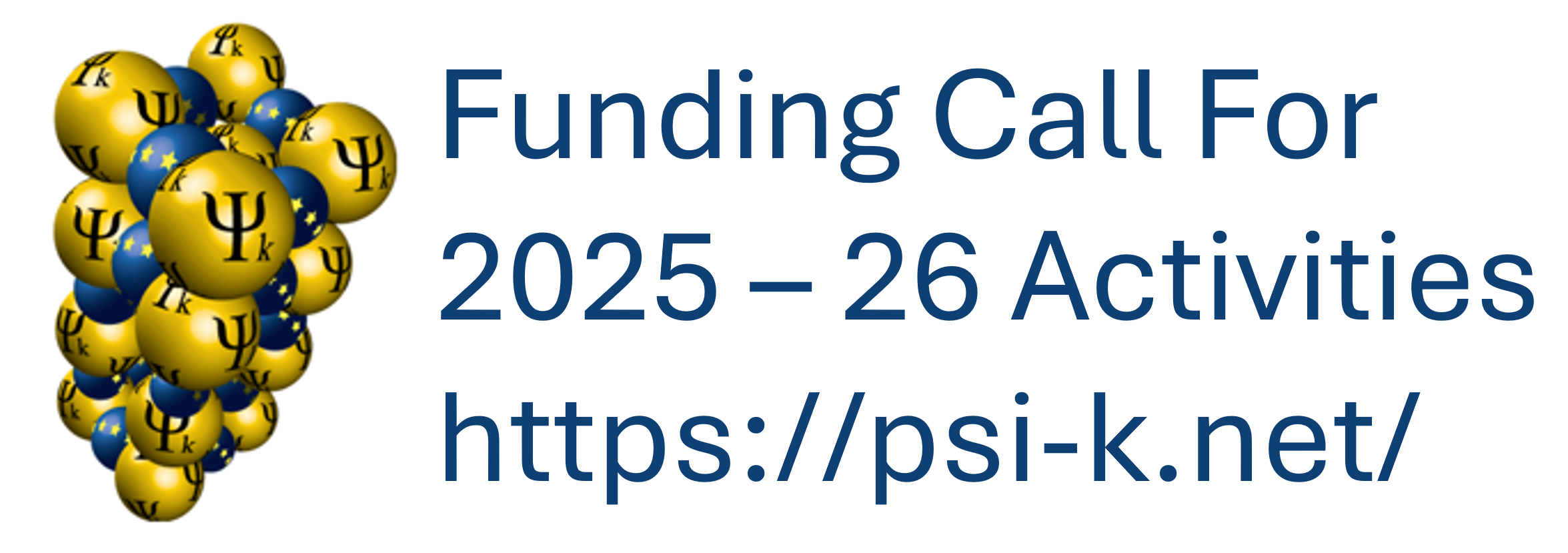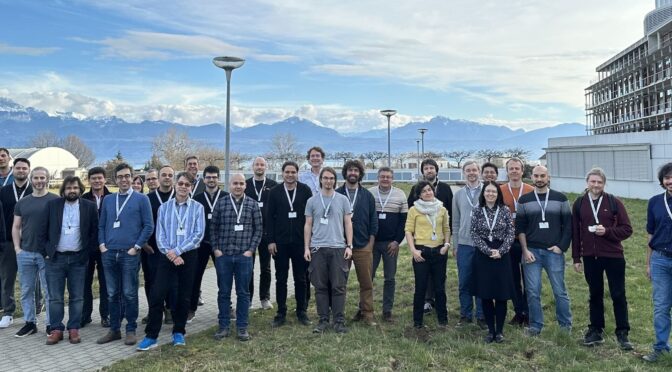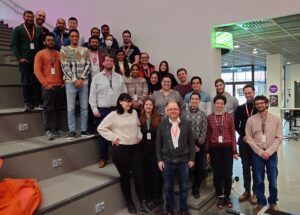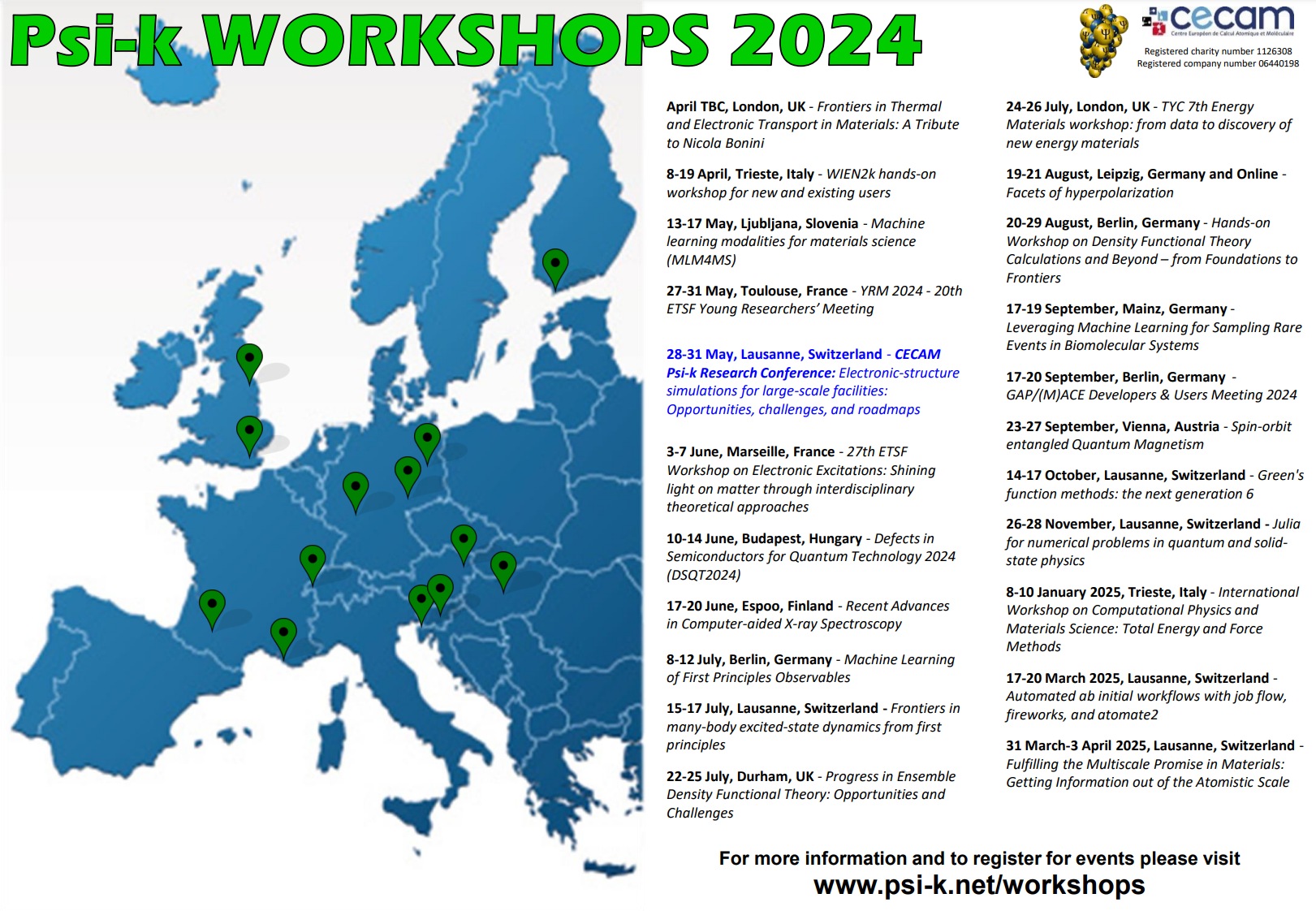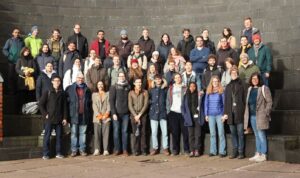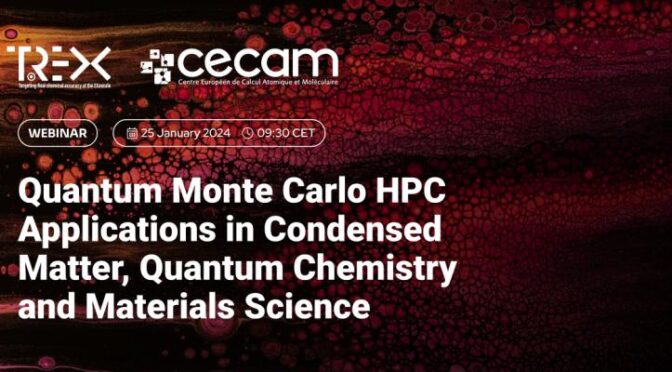To all in the Psi-k Community,
As previously announced, the next Psi-k Conference will take place in Lausanne on 25-28 August 2025. Registration will open around the end of 2024, so please save the date for now.
This is a worldwide community call for suggestions of thematic symposia (including their invited speakers and organisers) for the Conference.
As many of you know, Psi-k organises a general conference in its field every five years or so. The 2025 Conference will be the seventh in the series, following the very successful event already held in Lausanne (2022), and the earlier editions in San Sebastian (2015), Berlin (2010), and Schwäbisch Gmünd (2005, 2000, 1996). With 1200+ participants attending the last Conference, this makes it the largest event worldwide in first-principles simulations, theory, and applications.

The Conference will take place over 3.5 days, starting on the Monday afternoon, and will feature six plenary speakers. It will also include more than 120 invited and 240 contributed talks, organised into 30+ symposia in six parallel sessions. On average, symposia will last between two and three hours, and cover between two and four invited talks (30 min each), and between two and six contributed talks (15 min each).
To propose a symposium, you need to have a group of up to four organisers, as broad and as diverse as possible, identify a symposium theme (keeping in mind that about 20 symposia will be broadly dedicated to the core activities of the Psi-k working groups, https://psi-k.net/groups/) and suggest between two to four invited speakers. Organisers of selected symposia will also be in charge, in May 2025, of selecting contributed talks (two to six) from among all the abstracts submitted to the symposium by Psi-k 2025 participants.
The Psi-k 2025 Program Committee will evaluate in September 2024 all the submitted suggestions – the criteria will be:
1. scientific merit, timeliness, and interest of the topic
2. intellectual diversity and inclusiveness of the speakers
3. scientific merit and diversity of the organisers
4. alignment with the Psi-k mission statement (https://psi-k.net)
You can find the symposium suggestion form directly here: https://forms.gle/CdNCTghdM43SKjF9A
The deadline for suggestions is 5 July 2024.
We are very much looking forward to a successful Psi-k 2025, and to seeing you all in Lausanne.
Peter Haynes
(Psi-k 2025 Conference Chair)
Arash Mostofi
(Psi-k Chair of Trustees)

